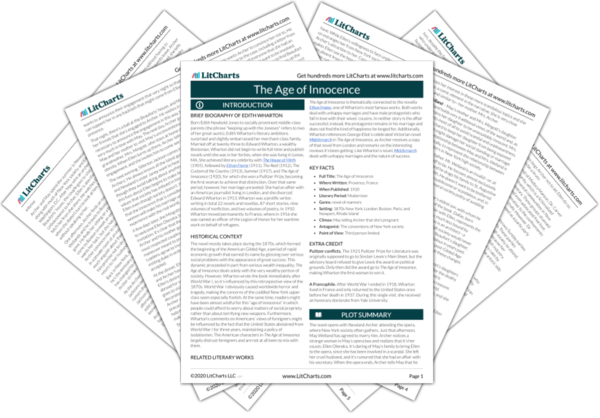Next
Summary
The Age of Innocence Study Guide |
Next
Summary
|
Welcome to the LitCharts study guide on Edith Wharton's The Age of Innocence. Created by the original team behind SparkNotes, LitCharts are the world's best literature guides.

Pulitzer conflicts. The 1921 Pulitzer Prize for Literature was originally supposed to go to Sinclair Lewis’s Main Street, but the advisory board refused to give Lewis the award on political grounds. Only then did the award go to The Age of Innocence, making Wharton the first woman to win it.
A Francophile. After World War I ended in 1918, Wharton lived in France and only returned to the United States once before her death in 1937. During this single visit, she received an honorary doctorate from Yale University.